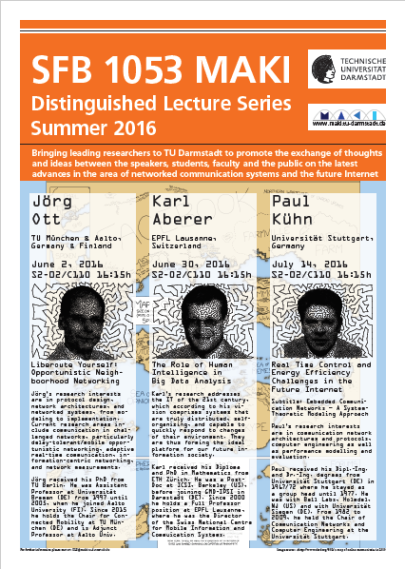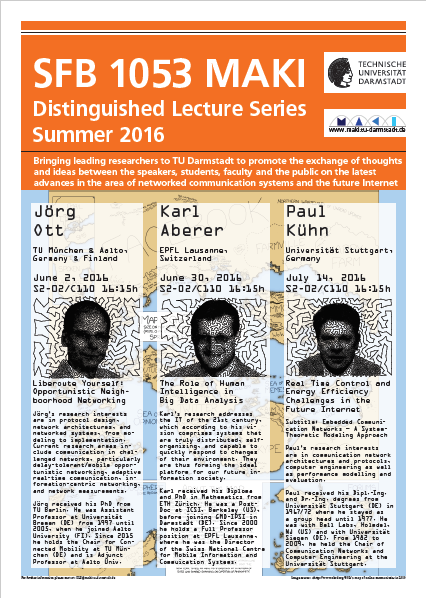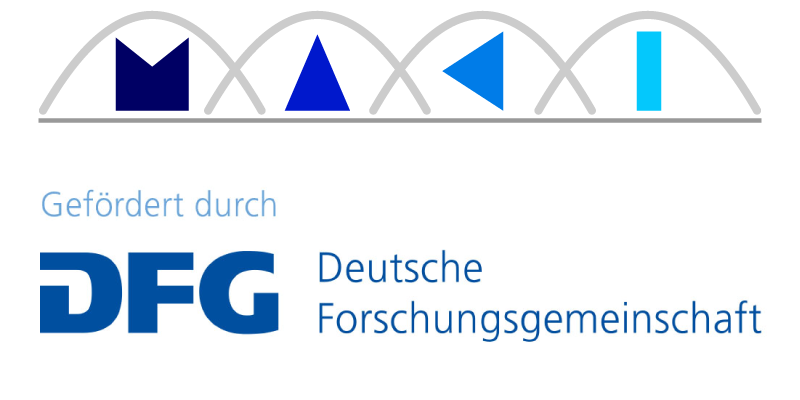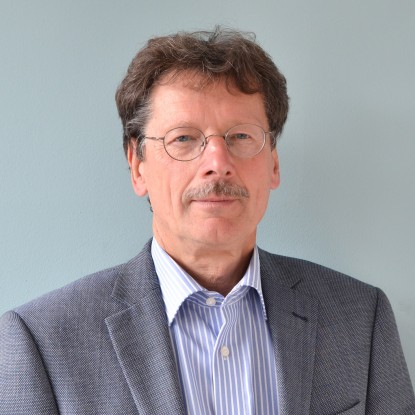Prof. Dr. Paul J. Kühn


14. Juli 2016, 16:15 Uhr
„Real Time Control and Energy Efficiency Challenges in the Future Internet: Embedded Communication Networks – A System-Theoretic Modeling Approach“
Ort: S2|02 Raum C110 (Robert-Piloty-Gebäude, Hochschulstr. 10, 64289 Darmstadt)
Abstract:
5G and Future Internet communication architectures have to support a wide range of different services, in particular real-time (RT) services under guaranteed QoS Service Level Agreements (SLA) to meet application requirements of distributed power control (Smart Grid), traffic control (Smart City), emergency management (accidents, disaster, health control), or integrated industrial processes (Integrated Production, Industry 4.0). Current communication infrastructures are not able to provide E-E latencies in the range of a few milliseconds. As a consequence, communication infrastructures should support such applications accordingly through low latency, low delay jitter, distributed cloud data storage, and efficient protocols. Performance modeling can contribute to these developments by methods for the theoretical analysis, simulation, measurement, and planning.
A couple of application scenarios will be considered as modeling examples:
Example 1: Detailed modeling of latencies for error control protocols for an efficient Timeout control with guaranteed latency percentiles
Example 2: Modeling E-E latency analysis for wide area packet networks through queuing networks by methods of two-moment traffic characterization.
Example 3: Efficient packet flow transport through SDN and NFV control plane support
Example 4: Energy-efficiency control in cloud data centers through automatic server consolidation and load balancing.
Latency is determined by the finite signal propagation speed, packet transmission times, protocol processing overhead, flow control and timeout mechanisms. Energy-efficiency depends on load-dependent server sleep modes, load balancing and dynamic voltage and frequency scaling (DVFS).
In a first step, adequate queuing or queuing network models have to be developed which reflect the parametric influences on the system performance. For the mathematical analysis of the resulting models queuing theory provides a large variety of principal methods; the complexity of the resulting models requires often, however, simplifying assumptions with a reasonable accuracy. From the viewpoint of distributed control applications the communication infrastructure impact can be considered as an embedded sub-system. A novel system-theoretic approach will be introduced to reduce the communication sub-system mathematically by stepwise aggregation methods to a resulting „stochastic dead time“ within the control loop or within the sensory/actuator transmission path. System-theoretic models are in particular appropriate to describe the system behavior by an input/output relationship, which is common in control and electric network theory. In this lecture we will show how both approaches of stochastic queuing theory and control theory can be combined by a system-theoretic approach.
Short Bio:
Paul J. Kühn received the Dipl.-Ing. and Dr.-Ing. degrees in Electrical Engineering from the University of Stuttgart, Germany, in 1967 and 1972, respectively. From 1973 to 1977, he was head of a research group for traffic research in computer and communications systems at the University of Stuttgart. In 1977, he joined Bell Laboratories, Holmdel, NJ., where he worked in the field of computer communications. In 1978, he was appointed professor for Communications Switching and Transmission at the University of Siegen, Germany. From 1982 till 2009, he held the chair of Communication Networks and Computer Engineering at the University of Stuttgart, Germany. His areas of interest are communication network architectures and protocols, computer engineering, performance modelling and evaluation, wherein he authored more than 150 technical publications.
Since 2010, he chairs the Advisory Board of the Research Center for the Formation of Information Technology (ITeG) of the University of Kassel.



